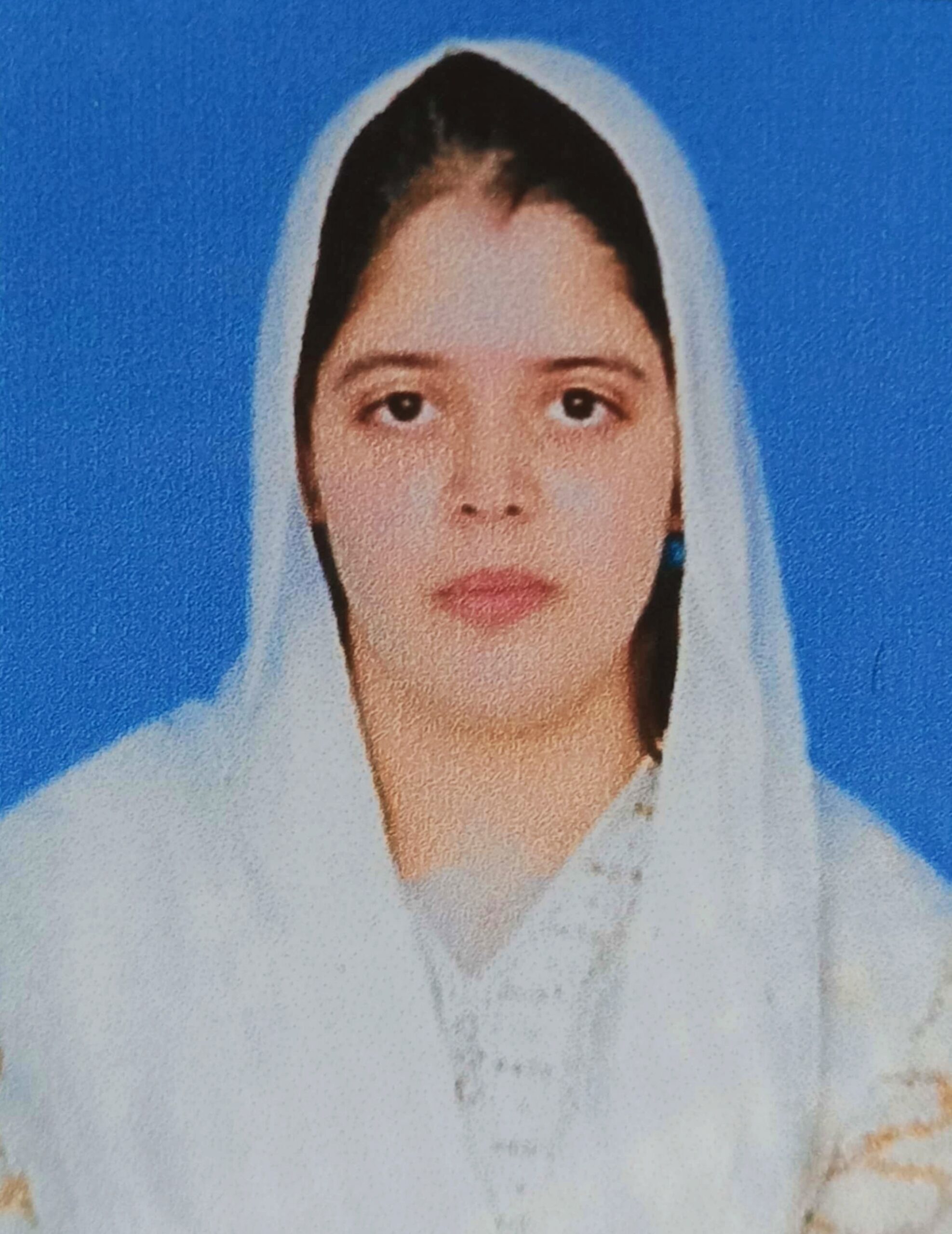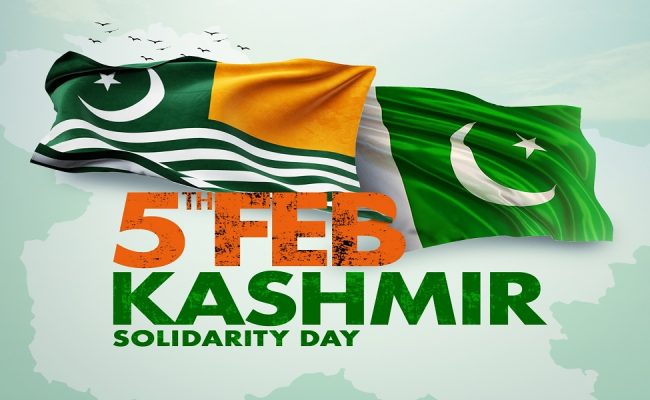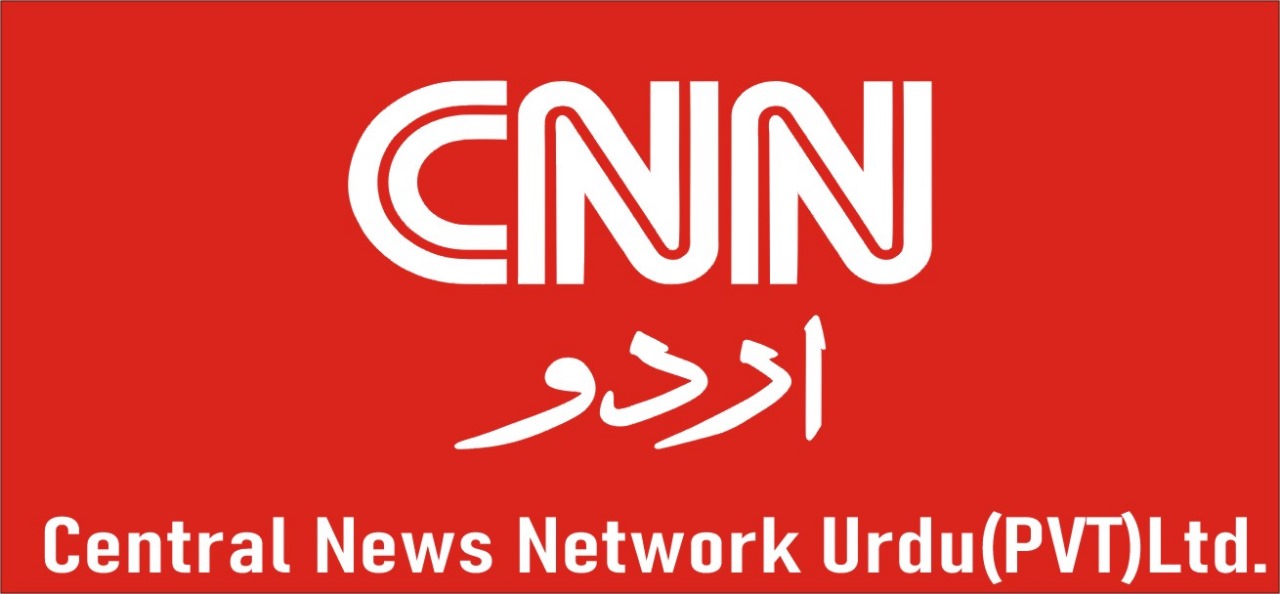By Eeman Gul
TWA
______
Every year on February 5, the people of Pakistan and Azad Jammu Kashmir (AJK) observe Kashmir Solidarity Day, which holds great significance for them, a day dedicated to expressing determined support for the Kashmiri struggle for self-determination. The day is dedicated to paying honor to the courageous Kashmiris who have lost their lives in the ongoing struggle for independence in the Indian illegally occupied Kashmir. This day acts as a reminder of the region’s continuous strife and the need for international action and awareness regarding the breaches of human rights that the people of Kashmir are subjected to.
Quaid-e-Azam Muhammad Ali Jinnah stated:
“Kashmir is the jugular vein of Pakistan; no nation would tolerate its jugular vein under the enemy’s sword.”
Significance of 5 February :
Kashmir Day was first observed in 1990 on the call of Mian Muhammad Nawaz Sharif, who appealed for a nationwide strike to protest against the Indian occupation of Kashmir. Later, Kashmir Day has been honored annually since February 5th, when the Pakistan People’s Party declared it a public holiday.
Nawaz Sharif, speaking on Solidarity Day:
“Our strike today is a message to India: Kashmir’s struggle is inseparable from Pakistan’s identity.”
With processions, demonstrations, and seminars arranged by political and religious leaders to promote the Kashmiri liberation movement, Kashmir Day is a key political event for several parties in Pakistan and Azad Kashmir. Prominent individuals frequently speak at these gatherings in favor of a peaceful settlement of the Kashmir dispute. One noteworthy practice that represents solidarity and togetherness with the Kashmiri people is the setting up of human chains along the main roadways that go to Azad Kashmir. Festivals and cultural events also support Kashmiri customs, and media channels broadcast unique material emphasizing the oppression Kashmiris endure. Students are also involved in discussions and debates on how to resolve issues relating to Kashmir in educational institutions.
This day highlights the atrocities being committed by India against the innocent Kashmiris in the Indian Occupied Jammu & Kashmir (IOJ&K). It also highlights the Hindutva ideology which promotes Hindu supremacy at the cost of minority rights such as the abrogation of Articles 370 and 35A. Events have been held both within Pakistan as well as internationally in recent years, such as Kashmir American Day in New York in 2021, which highlights the issue’s global scope.
HISTORICAL BACKGROUND
Examining Kashmir’s past is crucial to comprehending the current state of affairs there. The 1947 division of British India is where the origins of the Kashmir dispute reside. Princely states were offered the choice to join Pakistan or India at that time. In the face of an assault by Pakistani tribal militias, Hari Singh, the Maharaja of Jammu and Kashmir, first chose independence but ultimately decided to join India.
Due to this contentious accession, India and Pakistan fought three major wars as the first Indo-Pakistani conflict broke out in 1947–1948. The United Nations, which mediated the truce, created a Line of Control (LoC) that separated India and Pakistan in Kashmir. The plebiscite that the UN resolutions called for to give the Kashmiri people a say in their future has never taken place. The second war erupted in September 1965 following Pakistan’s Operation Gibraltar, which aimed to infiltrate forces into Jammu and Kashmir to incite an insurgency. The third war erupted in 1999 called the Kargil War. Along the LoC, there have been a lot of military conflicts and small skirmishes, especially since the early 2000s.
Indian soldiers continue to brutally occupy the Muslim-majority Kashmir Valley, violating the fundamental rights of Kashmiris, such as the freedom of speech, the right to self-determination, and the right to own property.
This conflict raises questions about the legitimacy of the United Nations. The League of Nations failed due to instability and preventing future conflict, will the United Nations meet the same destiny? In Kashmir, the UNSC has not held a plebiscite despite several decisions by the body. Just from 2000 to 2019, 4,427 Kashmiris lost their lives. More than 237,000 Kashmiris died throughout Maharaja Hari Singh’s reign. Over 96,000 people, including women and children, have been slaughtered since 1989. Sexual abuse, torture, and arbitrary arrests continue to be commonplace, traumatizing entire communities.
Abrogation of Articles 370 and 35A
When the Indian government repealed Articles 370 and 35A of its Constitution on August 5, 2019, the political environment in Kashmir experienced a dramatic change. Jammu and Kashmir was given special autonomy under Article 370, which gave it the right to a constitution of its own and significant legislative authority. The state legislature was able to designate permanent residents and grant them particular privileges concerning employment and property ownership according to Article 35A.
Indian government abrogated Article 370 without considering the will of the Kashmiri People. Indian government acted as a dictatorship imposed curfews, roadblocks, and censorship, and deployed military forces in the region of Jammu and Kashmir. These events are presented as an outright attack on Kashmiri identity and autonomy showing a critical attitude toward the policies of the Indian government, which many perceive as an effort to change the region’s demographic composition. It raised the question of the Indian democratic values.
Devastating humanitarian effects have resulted. There have reportedly been many cases of arbitrary detentions; crackdowns on protests against the abrogation resulted in the arrest of thousands of people. Cases of extrajudicial executions, enforced disappearances, and torture by Indian security personnel have been reported by human rights organizations.
Current Status of Kashmir
Jammu and Kashmir is still heavily occupied by the military today. Over 700,000 Indian troops are thought to be stationed there, making the area one of the most militarized in the world. People who live under continual observation have become fearful as a result of this military presence.
Human rights abuses persist unchecked. As per reports from groups such as Human Rights Watch and Amnesty International:
Numerous extrajudicial executions committed by security forces during clashes with insurgents have been linked to them. There are serious restrictions on the freedom of free speech, and reporters who cover delicate subjects involving violations of human rights are harassed. Torture in captivity has been reported by numerous captives; techniques include sexual abuse, electric shocks, and beatings. Kashmiri women are especially at risk reports show that sexual assault against them is frequently used as a weapon of war during wars. In addition to these abuses, the protracted conflict has left Kashmiri civilians with serious socioeconomic problems, including mental health issues and economic deterioration.
RECOMMENDATIONS
There is an urgent need for international attention and intervention in the situation in Jammu and Kashmir. Pakistan should continue its global outreach at international forums such as the UN, UNCHR, ONCHR, and OIC to raise awareness about the violation of human rights in Kashmir.
The world needs to understand that Kashmir is not an internal matter of India, it is the violation of human rights that exceeds day by day. Major international actors, including the United Nations and the European Union, often present themselves as champions of human rights, yet they turn a blind eye to the daily atrocities in Kashmir.
The international community must raise awareness about the ongoing human rights violations in Kashmir and advocate for justice and accountability, urging powerful institutions to hold India accountable for these abuses.
Kashmir is a “heaven on earth” but unfortunately involves the conflict. Kashmir remains a complex issue with no easy solution. From day one Pakistan stood with Kashmir, directly or indirectly they helped the Kashmiri people, and Kashmir Day not only holds significance for Pakistan but for the international community as well. The international community must demand a peaceful resolution that honors the aspirations of the Kashmiri people and hold India responsible for its actions.
The complicated historical, political, and religious aspects of the Kashmir dispute make finding a peaceful solution especially difficult. It is imperative to continue diplomatic efforts and have productive conversations with all pertinent parties. In order to promote a peaceful conclusion and guarantee the execution of its decisions pertaining to Kashmir, the international community particularly the United Nations must intervene more proactively.
Media outlets in Pakistan and India must employ specific strategies to promote narratives that prioritize peace. Instead of focusing just on security-related issues, Indian media outlets should focus on inclusive stories that highlight the perspectives and acquaintances of Kashmiris while showcasing community initiatives and resiliency. However, rather than escalating tensions, Pakistani media outlets should concentrate on encouraging amicable communication between the opposing sides. Instead of using divisive terminology, Pakistani media should present a more impartial assessment of the situation. They need to use a peace journalism approach to conduct a dialogue between the conflict parties so they resolve the issue through negotiations.
It is crucial to conduct in-depth investigations into the violations of human rights taking place in the area, and those involved must be held accountable. The welfare and goals of the Kashmiri people should be given top priority by all sides to the conflict, who should also make sure that their right to self-determination is upheld and their opinions are heard. To find a long-term solution to the Kashmir dispute, there must be a sincere dedication to peace, communication, and justice.
The Government of Pakistan should consider abolishing the holiday on February 5. Instead, educational institutions ought to organize seminars, debates, and functions aimed at raising awareness among students. This approach would foster critical thinking, enabling students to develop policies and strategies that could lead to a resolution of the Kashmir issue in the future.
CONCLUSION
Kashmir Solidarity Day is a crucial reminder of the continued suffering endured by the Kashmiri people, not only for Pakistan but also for people around the world. We must elevate voices calling for justice and promote discussions aimed at peacefully ending this protracted conflict as we commemorate February 5 every year.
Despite the tremendous obstacles that people living under occupation face, the fight for liberation continues, and solidarity is still a potent instrument for promoting change. Let us reaffirm our dedication to justice until all voices are heard and all rights are respected as we stand alongside our Kashmiri brothers and sisters today.
Numbers matter, the louder the collective voice, the harder it becomes to ignore.
Guest Author:
Eeman Gul

The writer of this article, Eeman Gul, is a student of Fatima Jinnah Women University. She can be reached at eemangul08@gmail.com


